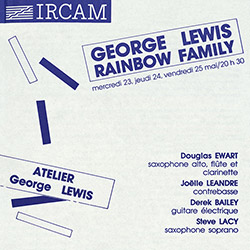
Recordings from 3 days of live performances in May, 1984 at the Institut de Recherche et de Coordination Acoustique/Musique (IRCAM) in France, using AACM legend and computer music innovator George Lewis' interactive virtual improvisor sytem Rainbow Family in virtual duo, trio and quartet settings with Douglas Ewart, Joelle Leandre, Derek Bailey & Steve Lacy.
Out of Stock
Quantity in Basket: None
Log In to use our Wish List
Shipping Weight: 3.00 units
Sample The Album:
George Lewis-composer
Douglas Ewart-bass clarinet, flute, Ewart bamboo flute
Joelle Leandre-contrabass
Derek Bailey-electric guitar
Steve Lacy-soprano saxophone
Click an artist name above to see in-stock items for that artist.
UPC: 759952113824
Label: Carrier Records
Catalog ID: 051
Squidco Product Code: 29750
Format: CD
Condition: New
Released: 2020
Country: USA
Packaging: Cardboard Gatefold 3 Panels w/ booklet
Recorded at IRCAM, in Paris, France, in May, 1984.
"This audio documentation of my interactive computer music work Rainbow Family is taken from three days of live performances that took place in May of 1984 at the Salle de Projection of the Institut de Recherche et de Coordination Acoustique/Musique (IRCAM). The performances are the culmination of two years of sustained research and creative work in fulfillment of an IRCAM commission. Thanks to Tod Machover and the late and greatly missed David Wessel (1942-2014), I spent three years there, meeting Pierre Boulez (1925-2016), Tristan Murail, Philippe Manoury, and many others, and making some lifelong friends and associates, like Kaija Saariaho and Jean-Baptiste Barriere, as well as György Kurtág (the younger) and the late Oliver Johnson (1944-2002), a lifelong friend of Wessel's (and a fellow drummer) with whom I performed in Steve Lacy's ensembles.
For a number of years, the only account of Rainbow Family, the first of my "interactive virtual orchestra" works and a precursor to the better-known Voyager virtual orchestra and "interactive virtual improvisor" systems from 1987 and onward, was in Georgina Born's still-controversial (in some circles) book, Rationalizing Culture: IRCAM, Boulez, and the Institutionalization of the Musical Avant-Garde (University of California Press, 1995). Despite the fact that most personages in the book are delineated with coded initials, those who venture into that complex ethnography will have no trouble recognizing the Rainbow projects and its composer. In all probability, this was the first commission from IRCAM for what were then called "microcomputers" (small systems) as well as the first that involved so-called improvising computer programs. Thus, for those interested in tracing the development of this aspect of my work, especially in the context of the history of interactive computer music-making more generally, this release could be useful.
Voyager and its offshoots, which are still being irregularly updated, have been taken by many as emblematic of my work in this area. However, Rainbow Family, which drew upon early '80s AI, 1950s cybernetics, and sociomusical networks of free improvisation in creating a social aesthetic that included "creative machines" as central actors, brought together the key methodologies and grounding aesthetics of interactivity that marked my later work:
(1) Human and/or non-human musicians engage in live, completely improvised dialogue with a computer-driven, interactive "virtual improvisor."
(2) One or more computer programs analyze aspects of the musical environment in real time, using that analysis to guide an automatic "improvisation" program that generates both complex responses to input and independent generative and analytic behavior that arises from its own internal processes.
(3) The system is an independent improvisor with its own set of musical approaches. When it detects outside input, it takes what it finds into account as part of its decision-making process. However, it should not need outside input to create music.
(4) As an independent improvisor, difference is asserted by the system in the form of program responses that are not necessarily related (or even deliberately unrelated to) outside input. These responses can be heard as the consequences of different modes of a construction of "listening," where the software attempts to create a detailed representation of what it receives from the improvisors.
(5) In playing with different people or in different musical situations, the system should play differently, while retaining something of its own personality.
(6) Any conceivable behavior choices should be designed into the system as part of its base of competencies for it to choose from freely, rather than incorporating hard-wired Pavlovian responses or transforming the system into an instrument to be manipulated by the human performer. Otherwise, I would not be learning much about the nature of communicative strategies in improvisation.
Thus, as new media theorist Simon Penny has maintained about interactive works more generally, "the machine system is constituted as a quasi-organism which responds to changes or perturbations in its environment." Performances and computer programs such as this deal with the nature of music and, in particular, the processes by which improvising musicians produce it.In this kind of work, the improvised musical encounter is experienced as a sonic negotiation between musicians, some of whom are people and others not. Any entity operating in this conceptual space would deal with issues of behavior, communication and intersubjectivity. As the anthropologist of technology Lucy Suchman has maintained, such interactions succeed through the communitarian construction of intelligibility. Suchman's logical conclusion here, one that has guided my work with interactive machines since the late 1970s, is that "machine-human differences are discursively enacted and available for refiguring."
The 1984 IRCAM Rainbow performances featured from one to four human improvisors (contrabassist Joëlle Léandre, soprano saxophonist Steve Lacy, flutist and bass clarinetist Douglas Ewart, and guitarist Derek Bailey) performing with three networked Apple II computers, which performed on three of the then-new Yamaha DX-7 synthesizers. Audio input from the instrumentalists went to analog pitch- and envelope-following hardware, which generated voltage values that were converted to digital form. This input information was collected by one computer and distributed over a MIDI-like network to the others; each machine analyzed the data locally and created its own responses to what it "heard," as well as generating and developing original material with no necessary direct relationship to the input.
Both the computer programming and the hardware hacking for Rainbow were completely my own, and the documentary film about the work that IRCAM produced in 1984 shows me working in the computer language FORTH, which I learned about from my mentor David Behrman. The reason why FORTH became useful in these pre-Max/MSP days was that it was interactive in real human time with the programmer. New modules were quickly compiled and easily tested, and FORTH "words," as subroutines were called, could be connected to each other and run interactively. Time-critical processes could be coded in assembly language and easily linked to the rest of the system.
As I recall, the form of Rainbow's musical process resembled a kind of simple generative grammar. Unfortunately, due to my nomadic lifestyle in the 1980s, I no longer have access to Rainbow's source code. However, I did program the display to show where the system was in its generative process, as well as which of the four musicians it was taking input data from. The documentary film actually shows the display at multiple points, which allowed me to regain a sense of the system's process grammar. From this I can recall that Rainbow used a "phrase cycle," a syntactical "theme and variations" idea with a set of optional behaviors that ran in strict order with options:
PLAY NEW 1Create a new phrase, choosing melodies, harmonies, rhythms, dynamics, register, interval width and timbre (DX-7 settings, based on timbres created and generously provided by the now-legendary David Bristow, who was in residence at IRCAM, working with the already legendary John Chowning). I think this process could also choose material from a set of pitches and durations it detected in the input; certainly the later Voyager does this.
PLAY 2
Create a variation on what was created in PLAY NEW 1.
PLAY 3 (optional)
Create another variation on what was created in PLAY NEW 1.
PLAY (optional)
Play "freely" without regard to previous themes.
PHRASE REST (optional)
A short pause, probably around 2-3 seconds, that could be asserted after PLAY NEW 1, PLAY 2, PLAY 3, or PLAY.
LONG REST (optional)
A pause, generally asserted after the end of a completed phrase cycle, but not that often.
So you would get combinations like:
PLAY NEW 1 / PHRASE REST / PLAY 2 / PLAY 3 / PLAY
PLAY NEW 1 / PLAY 2 / PLAY 3 / LONG REST
PLAY NEW 1 / PLAY 2 / PHRASE REST / PLAY 3 / PLAY
PLAY NEW 1 / PLAY
The system's pitch and volume information came from an analog pitch follower designed by Carl Fravel and sold through his Gentle Electric company (gentleelectric.com/documentation/Gentle_Electric_PEF_Pitch_and_Envelope_Follower-Service_Manual.pdf). Serge Tcherepnin graciously told me that this formed the basis for his Serge Modular pitch follower, but I would have to wire up this OEM version myself using the schematic that came with the device. We also had some help from the Yamaha Corporation, which provided the DX-7s. Apple Computer France provided the Apple IIe computers; in 1983, Wessel, who seemed to know everybody, brought John Sculley, then CEO of the company, to IRCAM. Sculley provided a tantalizing preview of a new kind of Apple, called a "Macintosh," that came out a bit too late to use in the Rainbow project.
I did not feel the need to take volume outputs from the musicians individually; the assumption/hope was that the human players would mostly match their volumes to each other, so one volume number would be enough. The microphone outputs from each player were sent to an 8-in/1-out Analog Devices analog switch multiplexer, which could be digitally controlled with a single byte. Three bits was enough for eight channels, as you binary heads know; 000 was channel 1, 001 was channel 2, and so on. One channel at a time was opened to the pitch follower. The system would always try to match input volume, durations, and register, and those parameters would affect its choices of musical output. The time between two successive pitches was taken as duration, but to avoid glitches, durations that were too short weren't registered. If the system did not detect any input for more than three seconds, it would pause its playing and you would see "READY" onscreen.
The work was originally conceived not as a network of computers, but as three separate computer improvisors, each running a copy of the Rainbow Family software and making its own performance decisions. The differences in decision-making would be interpreted as a form of sonic individuation--perhaps along lines suggested by Gilbert Simondon, but also based on the terminology developed by African American improvisors, in which players strive to develop their own unique "sound." Developing one's own sound amounted to a process of sonic subjectivation.
This was the theory. However, in rehearsals the musicians began referring not to computer A, B, or C, but to "the machine." To enhance the impression of individuation, I tried strategies of spatialization by having separate speakers for each machine's output, as well as limiting the set of sounds each machine had available for output. Neither of these strategies could shake the impression of a unitary "machine" subject. I eventually realized that what I had not done was to create three separate programs, each with its own behavior. Three improvisors, even performing on the same instrument, would be heard as three individuals, because the behavior of the individual performers would be different. In the case of Rainbow Family, the three machines were clones that pursued the same kinds of behavior over time, even if individual decisions taken at certain times differed. The response to this by the human performers was what made Rainbow Family an interactive virtual orchestra.
Over the years I've had time to think about Georgina Born's account of my activities at IRCAM, while being reminded by her book that a few people there really were as dismissive of my work as I thought they were, even after three days of interactive computer music concerts in which the system never failed once. Moreover, it was embarrassing, if true, to read that "while subverting many aspects of IRCAM and its technologies, PL [me] did not contest the dominant forms of rhetoric around music and the aesthetic." Indeed, phrases from the 1984 program notes, such as "The structure of Rainbow Family includes both improvised and precomposed elements," show me trying to read the dominant aesthetic and adopt its tenets.
At the same time, I was in a DuBoisian condition of double consciousness, what Cornel West has identified as characteristic of "a new breed of cultural workers who simultaneously position themselves within (or alongside) the mainstream while clearly aligned with groups who vow to keep alive potent traditions of critique and resistance." Thus, what actually happened in Rainbow Family performances might have been a radical position in the musique contemporaine of the time-free improvisations among computers and people in which, as the program notes suggested, "computers and performers have almost the same degree of initiative and responsibility over the course of the performance."
In my further defense I can only say that I was an immigrant, living in Europe for the first time, struggling with the languages, and trying to assimilate into an international institutional culture from an outsider position, not only in terms of aesthetics and methodology, but in terms of race, a term that was controversially removed from the French constitution in 2018. Indeed, the title of the work referred both to the multi-timbral sound of the piece, and to its dedicatees, the biracial family of my longtime friend and colleague, clarinetist J.D. Parran.
One claim made by European policymakers is that the refusal to collect and analyze statistics on race avoids identity politics and promotes national unity. Subaltern populations, however, are not deceived by all the universalist chatter; the resulting lack of documentation of racialized inequity, or "the choice of ignorance," as social scientist Patrick Simon put it, can simply be a tactic for consolidating the position of dominant groups. Hopping into a Parisian taxi just after the Rainbow Family documentary was shown on the French television channel TF1, the driver, who was black, asked if it was really me in the film, remarking that he hadn't known that there were black people at IRCAM. Indeed, in all probability I was the first to have received such a commission, although I would be pleased now for that impression to be proven incorrect. Then I remember him saying, "But you are American. It's different for you."
We can conclude from the foregoing discussion that interactive computer music can provoke questions that encompass not only technological or music-theoretical interests but philosophical, political, cultural and social concerns as well. In fact, I can say that much of my later scholarly work in critical improvisation studies emerges from my practices of interactive computing. Rainbow Family was an important point of departure for my computer-aided inquiry, over more than forty years, into agency, communication, subjectivity, listening, intentionality, social responsibility, and freedom."-George Lewis

The Squid's Ear!
Artist Biographies
• Show Bio for George Lewis "George E. Lewis is the Edwin H. Case Professor of American Music at Columbia University. A 2015 Fellow of the American Academy of Arts and Sciences and a Corresponding Fellow of the British Academy, Lewis has received a MacArthur Fellowship (2002), a Guggenheim Fellowship (2015), a United States Artists Walker Fellowship (2011), an Alpert Award in the Arts (1999), and fellowships from the National Endowment for the Arts. In 2015, Lewis received the degree of Doctor of Music (DMus, honoris causa) from the University of Edinburgh. A member of the Association for the Advancement of Creative Musicians (AACM) since 1971, Lewis's work in electronic and computer music, computer-based multimedia installations, and notated and improvisative forms is documented on more than 140 recordings. His work has been presented by the BBC Scottish Symphony Orchestra, London Philharmonia Orchestra, Radio-Sinfonieorchester Stuttgart, Boston Modern Orchestra Project, Talea Ensemble, Dinosaur Annex, Ensemble Pamplemousse, Wet Ink, Ensemble Erik Satie, Eco Ensemble, and others, with commissions from American Composers Orchestra, International Contemporary Ensemble, Harvestworks, Ensemble Either/Or, Orkestra Futura, Turning Point Ensemble, San Francisco Contemporary Music Players, 2010 Vancouver Cultural Olympiad, IRCAM, Glasgow Improvisers Orchestra, and others. Lewis has served as Ernest Bloch Visiting Professor of Music, University of California, Berkeley; Paul Fromm Composer in Residence, American Academy in Rome; Resident Scholar, Center for Disciplinary Innovation, University of Chicago; and CAC Fitt Artist In Residence, Brown University. Lewis received the 2012 SEAMUS Award from the Society for Electro-Acoustic Music in the United States, and his book, A Power Stronger Than Itself: The AACM and American Experimental Music (University of Chicago Press, 2008) received the American Book Award and the American Musicological Society's Music in American Culture Award. Lewis is co-editor of the two-volume Oxford Handbook of Critical Improvisation Studies (2016), and his opera Afterword, commissioned by the Gray Center for Arts and Inquiry at the University of Chicago, premiered at the Museum of Contemporary Art Chicago in October 2015 and has been performed in the United States, United Kingdom, and the Czech Republic. Professor Lewis came to Columbia in 2004, having previously taught at the University of California, San Diego, Mills College, the School of the Art Institute of Chicago, the Koninklijke Conservatorium Den Haag, and Simon Fraser University's Contemporary Arts Summer Institute. Lewis studied composition with Muhal Richard Abrams at the AACM School of Music, and trombone with Dean Hey." ^ Hide Bio for George Lewis • Show Bio for Douglas Ewart "Perhaps best known as a composer, improviser, sculptor and maker of masks and instruments, Douglas R. Ewart is also an educator, lecturer, arts organization consultant and all around visionary. In projects done in diverse media throughout an award-winning and widely-acclaimed 40-year career, Mr. Ewart has woven his remarkably broad gifts into a single sensibility that encourages and celebrates--as an antidote to the divisions and compartmentalization afflicting modern life-the wholeness of individuals in culturally active communities. Born in Kingston, Jamaica in 1946, Douglas R. Ewart immigrated to Chicago, Illinois in the United States in 1963. His travels throughout the world and interactions with diverse people since then has, again and again confirmed his view that the world is an interdependent entity. An example of his efforts both to study and to contribute to this interdependence is his use of his prestigious 1987 U.S.-Japan Creative Arts Fellowship to study both modern Japanese culture and the traditional Buddhist shakuhachi flute, and also to give public performances while in Japan. In America, his determination to spread his perspective is part of the inspiration behind his often multi-disciplinary works and their encouragement of artist-audience interactions. It is also the basis of the teaching philosophy with which he guides his classes at the School of the Art Institute of Chicago, where he has taught since 1990, and the basis of the perspective he has brought to his service on advisory boards for institutions such as The National Endowment for the Arts, Meet the Composer (New York City) and Arts Midwest. Mr. Ewart uses his past experience as chairman of the internationally renowned Association for the Advancement of Creative Musicians (AACM) to celebrate and build upon the history and achievements of the organization, and is from this perspective a natural extension of the activities he has been engaged in for the past four decades. His administrative, teaching and other duties have not prevented Ewart from maintaining several musical ensembles, the Nyahbingi Drum Choir. the Clarinet Choir, Douglas R. Ewart & Inventions, Douglas R. Ewart & Quasar and Douglas R. Ewart & Stringnets. Nor has it prevented him from releasing some of the resulting music on his own record label, Aarawak Records (founded in 1983), which has released his Red Hills and Bamboo Forest, Bamboo Meditations at Banff, Angles of Entrance, New Beings, and Velvet Fire.Always seeking new ways to be an agent of transformation, and convinced that compositions should change, just as their performers do, Ewart has created new or revised musical forms, such has his suite "Music from the Bamboo Forest," which is in a state of constant evolution (its score currently comprises six movements employing a cornucopia of flutes, reeds, percussion instruments--many of them handmade -- and significant audience participation). Each performance or production by Ewart reflects time-tested structures, but each also incorporates his most immediate experiences of America and the world, and taps his many creative engagements with collaborators such the master musicians as Muhal Richard Abrams, Amina Myers, Beah Richards, the Art Ensemble of Chicago, Anthony Braxton, Alvin Curran, Anthony Davis, Von Freeman, Fred Anderson, Joseph Jarman, Yusef Lateef, Roscoe Mitchell, Ajule Sonny Rutlin, Rita Warford, Dee Alexander, Robert Dick, George E. Lewis, James Newton, Cecil Taylor, Richard Teitelbaum and Henry Threadgill. Beyond sound itself, Ewart's music finds natural extensions (in every sense of the word) in the instruments he makes, which run the gamut from unique wind instruments to percussion instruments. Beyond these are sculptures, sound sculptures, and individually handcrafted masks that have been exhibited at Museum of Contemporary Art and the Art Institute of Chicago, among others. All these elements of his art are on display every year in Chicago and in other cities in stagings of "Crepuscule," which in Ewart's own opinion best represents his celebratory spontaneity and commitment to organic inclusivity. A massive collective composition, "Crepuscule" is a celebration of sunset that brings together diverse musical groups, dancers, artists and activist for a musical and visual event that has become one of the signature programs of the Jazz Institute of Chicago, being held annually at the city's Washington Park. Ewart improvises with the scores of other performers who come together for "Crepuscule" by using not only well-known wind instruments but also his own wondrously inventive percussion instruments (crutches, oars and skis transformed by cymbals and bells). In addition to having been adopted as an annual ritual in Chicago, "Crepuscule" has been performed in Philadelphia, PA and Minneapolis, MN, and employed by the Banlieues Bleues Festival in Paris, France to unite the diverse artistic and ethnic cultures of Paris' inner city communities. Ewart is the winner of the Bush Artists Fellowship (1997), Minnesota ComposersForum/McKnight Foundation fellowships, Jerome Foundation grants, Mayor Harold Washington's Outstanding Artist Award and a Naropa Institute residency among many other honors. He has performed at the Moers International Festival (Germany), at the University of Puerto Rico San Juan, throughout Brazil, in Tokyo, Perth, Havana, Paris, Stockholm, London, Düsseldorf and Berlin; in the U.S. he has performed at Mobius (Boston), The Contemporary Art Center (New Orleans), the Walker Art Center (Minneapolis), the Science Museum (St. Paul), 1750 Arch Street (Berkeley), Painted Bride (Philadelphia), Creative Arts Collective (Detroit), Lincoln Park Zoo and the Field Museum of Natural History (Chicago), Merkin Hall, the Public Theater, The Kitchen and Carnegie Hall (New York). He has led workshops and lectured at Louisiana Nature Center (New Orleans), University of Illinois Unit One (Champaign), the Smithsonian Institution (Washington, DC.), Northwestern University (Evanston), University of Chicago and the Banff Center for the Arts (Alberta, Canada)." ^ Hide Bio for Douglas Ewart • Show Bio for Joelle Leandre "Joëlle Léandre is a famous French Bassist and is known for her collaborations with other musicians in the field of improvised music. Born in France on September 12th, 1951, she made her music debut in 1984 with Les Douze Sons. Her childhood was filled with music, and she was particularly interested in the piano during her early years. In her later years, she developed an interest in double bass, which won her many honors and scholarships during her education. Her double bass teacher Pierre Delescluse encouraged her to apply to the Conservatoire National Superieur de Musique de Paris, where she was formally trained and noticed for her talent in the bass. Her outstanding musicianship took her to the United States and to the Centre for Creative and Performing Arts in Buffalo through a scholarship. In the United States, she expanded her network and met some of the best composers, such as John Cage, Giacinto Scelsi, and Morton Feldman. Among them, John Cage greatly influenced her music and compositions. Her time in the United States also enabled her to experience downtown New York music, which was another significant influence that led to her continued involvement in the field of improvised music. Some of her notable collaborations in the field of contemporary music are with Pierre Boulez, Merce Cunningham, John Cage, and Giacinto Scelsi. Among them, John Cage and Giacinto Scelsi were the biggest influences in her life and music. In an interview, Joëlle Léandre said that John Cage was her spiritual father and changed her perception of sound and music. In another interview, she tells how Giacinto Scelsi allowed her to discover her own music and how his music transported her into a new world of improved consciousness. In the field of jazz music, she collaborated with Derek Bailey, William Parker, and Sebi Tramontana. Her music was owned and distributed by different music labels, including FMP, Leo, RougueArt, and Red Toucan. Some memorable songs and albums she released throughout the years include Instant Replay, Les Douze sons, Trios, Sweet Zee, Frerebet, Joelle et Tetsu, Philippe Fenelon, Voyages, etc. Some of the recent releases include Can You Hear Me and Unleashed. She has also performed live at the Tampere Jazz Festival twice, where popular international artists compete with each other. Joëlle Léandre is also the member of European Women's Improvising Group (EWIG). The group evolved from the Feminist Improvising Group, and Joëlle Léandre joined the group in 1983. In the early 1900s, she co-founded Les Diaboliques with Irene Schweizer and Maggie Nicols, who were her long-time musician friends. Besides that, she also teaches several classes in prestigious universities about contemporary and improvised music. She has lived in France, Germany, and U.S during her lifetime, teaching at academic institutions in the religions and playing concerts. In 2002, she was invited to Canada as a visiting professor for music and composition." ^ Hide Bio for Joelle Leandre • Show Bio for Derek Bailey "Derek Bailey (29 January 1930 - 25 December 2005) was an English avant-garde guitarist and leading figure in the free improvisation movement. Bailey was born in Sheffield, England. A third-generation musician, he began playing the guitar at the age of ten, initially studying music with his teacher and Sheffield City organist C. H. C. Biltcliffe, an experience that he did not enjoy, and guitar with his uncle George Wing and John Duarte. As an adult he worked as a guitarist and session musician in clubs, radio, dance hall bands, and so on, playing with many performers including Morecambe and Wise, Gracie Fields, Bob Monkhouse and Kathy Kirby, and on television programs such as Opportunity Knocks. Bailey's earliest foray into 'what could be called free improvised music' was in 1953 with two other guitarists in their shared flat in Glasgow. He was also part of a Sheffield-based trio founded in 1963 with Tony Oxley and Gavin Bryars called "Joseph Holbrooke" (named after the composer, whose work they never actually played). Although originally performing relatively "conventional" modal, harmonic jazz this group became increasingly free in direction. Bailey moved to London in 1966, frequenting the Little Theatre Club run by drummer John Stevens. Here he met many other like-minded musicians, such as saxophonist Evan Parker, trumpet player Kenny Wheeler and double bass player Dave Holland. These players often collaborated under the umbrella name of the Spontaneous Music Ensemble, recording the seminal album Karyobin for Island Records in 1968. In this year Bailey also formed the Music Improvisation Company with Parker, percussionist Jamie Muir and Hugh Davies on homemade electronics, a project that continued until 1971. He was also a member of the Jazz Composer's Orchestra and Iskra 1903, a trio with double-bass player Barry Guy and tromboneist Paul Rutherford that was named after a newspaper published by the Russian revolutionary Vladimir Lenin. In 1970, Bailey founded the record label Incus with Tony Oxley, Evan Parker and Michael Walters. It proved influential as the first musician-owned independent label in the UK. Oxley and Walters left early on; Parker and Bailey continued as co-directors until the mid-1980s, when friction between the men led to Parker's departure. Bailey continued the label with his partner Karen Brookman until his death in 2005[citation needed]. Along with a number of other musicians, Bailey was a co-founder of Musics magazine in 1975. This was described as "an impromental experivisation arts magazine" and circulated through a network of like-minded record shops, arguably becoming one of the most significant jazz publications of the second half of the 1970s, and instrumental in the foundation of the London Musicians Collective. 1976 saw Bailey instigate Company, an ever-changing collection of like-minded improvisors, which at various times has included Anthony Braxton, Tristan Honsinger, Misha Mengelberg, Lol Coxhill, Fred Frith, Steve Beresford, Steve Lacy, Johnny Dyani, Leo Smith, Han Bennink, Eugene Chadbourne, Henry Kaiser, John Zorn, Buckethead and many others. Company Week, an annual week-long free improvisational festival organised by Bailey, ran until 1994. In 1980, he wrote the book Improvisation: Its Nature and Practice. This was adapted by UK's Channel 4 into a four-part TV series in the early '90s, edited and narrated by Bailey. Bailey died in London on Christmas Day, 2005. He had been suffering from motor neurone disease." ^ Hide Bio for Derek Bailey • Show Bio for Steve Lacy "Steve Lacy (July 23, 1934 - June 4, 2004), born Steven Norman Lackritz in New York City, was a jazz saxophonist and composer recognized as one of the important players of soprano saxophone. Coming to prominence in the 1950s as a progressive dixieland musician, Lacy went on to a long and prolific career. He worked extensively in experimental jazz and to a lesser extent in free improvisation, but Lacy's music was typically melodic and tightly-structured. Lacy also became a highly distinctive composer, with compositions often built out of little more than a single questioning phrase, repeated several times. The music of Thelonious Monk became a permanent part of Lacy's repertoire after a stint in the pianist's band, with Monk's songs appearing on virtually every Lacy album and concert program; Lacy often partnered with trombonist Roswell Rudd in exploring Monk's work. Beyond Monk, Lacy performed the work of jazz composers such as Charles Mingus, Duke Ellington and Herbie Nichols; unlike many jazz musicians he rarely played standard popular or show tunes. Lacy began his career at sixteen playing Dixieland music with much older musicians such as Henry "Red" Allen, Pee Wee Russell, George "Pops" Foster and Zutty Singleton and then with Kansas City jazz players like Buck Clayton, Dicky Wells, and Jimmy Rushing. He then became involved with the avant-garde, performing on Jazz Advance (1956), the debut album of Cecil Taylor,:55 and appearing with Taylor's groundbreaking quartet at the 1957 Newport Jazz Festival; he also made a notable appearance on an early Gil Evans album. His most enduring relationship, however, was with the music of Thelonious Monk: he recorded the first album to feature only Monk compositions (Reflections, Prestige, 1958) and briefly played in Monk's band in 1960:241 and later on Monk's Big Band and Quartet in Concert album (Columbia, 1963). Lacy's first visit to Europe came in 1965, with a visit to Copenhagen in the company of Kenny Drew; he went to Italy and formed a quartet with Italian trumpeter Enrico Rava and the South African musicians Johnny Dyani and Louis Moholo (their visit to Buenos Aires is documented on The Forest and the Zoo, ESP, 1967). After a brief return to New York, he returned to Italy, then in 1970 moved to Paris, where he lived until the last two years of his life. He became a widely respected figure on the European jazz scene, though he remained less well known in the U.S. The core of Lacy's activities from the 1970s to the 1990s was his sextet: his wife, singer/violinist Irene Aebi,:272 soprano/alto saxophonist Steve Potts, pianist Bobby Few, bassist Jean-Jacques Avenel, and drummer Oliver Johnson (later John Betsch). Sometimes this group was scaled up to a large ensemble (e.g. Vespers, Soul Note, 1993, which added Ricky Ford on tenor sax and Tom Varner on French horn), sometimes pared down to a quartet, trio, or even a two-saxophone duo. He played duos with pianist Eric Watson. Lacy also, beginning in the 1970s, became a specialist in solo saxophone; he ranks with Sonny Rollins, Anthony Braxton, Evan Parker, and Lol Coxhill in the development of this demanding form of improvisation. Lacy was interested in all the arts: the visual arts and poetry in particular became important sources for him. Collaborating with painters and dancers in multimedia projects, he made musical settings of his favourite writers: Robert Creeley, Samuel Beckett, Tom Raworth, Taslima Nasrin, Herman Melville, Brion Gysin and other Beat writers, including settings for the Tao Te Ching and haiku poetry. As Creeley noted in the Poetry Project Newsletter, "There's no way simply to make clear how particular Steve Lacy was to poets or how much he can now teach them by fact of his own practice and example. No one was ever more generous or perceptive." In 1992, he was the recipient of a MacArthur Fellowship (nicknamed the "genius grant"). He also collaborated with a wide range of musicians, from traditional jazz to the avant-garde to contemporary classical music. Outside of his regular sextet, his most regular collaborator was pianist Mal Waldron,:244-245 with whom he recorded a number of duet albums (notably Sempre Amore, a collection of Ellington/Strayhorn material, Soul Note, 1987). Lacy played his 'farewell concerts to Europe' in Belgium, in duo and solo, for a small but motivated public. This happened in Brussels, Antwerp, Ghent, Bruge and Bergen. This recollection is published by Naked Music. In Ghent he played with the classical violinist Mikhail Bezverkhni, winner of Queen Elisabeth Concours. He returned to the United States in 2002, where he began teaching at the New England Conservatory of Music in Boston, Massachusetts. One of his last public performances was in front of 25,000 people at the close of a peace rally on Boston Common in March 2003, shortly before the US-led invasion of Iraq. After Lacy was diagnosed with cancer in August 2003, he continued playing and teaching until weeks before his death on June 4, 2004 at the age of 69." ^ Hide Bio for Steve Lacy
10/22/2025
Have a better biography or biography source? Please Contact Us so that we can update this biography.
10/22/2025
Have a better biography or biography source? Please Contact Us so that we can update this biography.
10/22/2025
Have a better biography or biography source? Please Contact Us so that we can update this biography.
10/22/2025
Have a better biography or biography source? Please Contact Us so that we can update this biography.
10/22/2025
Have a better biography or biography source? Please Contact Us so that we can update this biography.
Track Listing:
1. Spoken Introduction By George Lewis 0:49
2. With Joelle Leandre 7:55
3. With Derek Bailey 7:47
4. With Douglas Ewart 11:44
5. With Steve Lacy 4:39
6. With Douglas Ewart And Derek Bailey 8:54
7. With D. Ewart, J. Leandre, D. Bailey, S. Lacy 19:47
Improvised Music
Jazz
Free Improvisation
Electro-Acoustic
European Improvisation, Composition and Experimental Forms
Lacy, Steve
Bailey, Derek
Quintet Recordings
New in Experimental & Electronic Music
Search for other titles on the label:
Carrier Records.

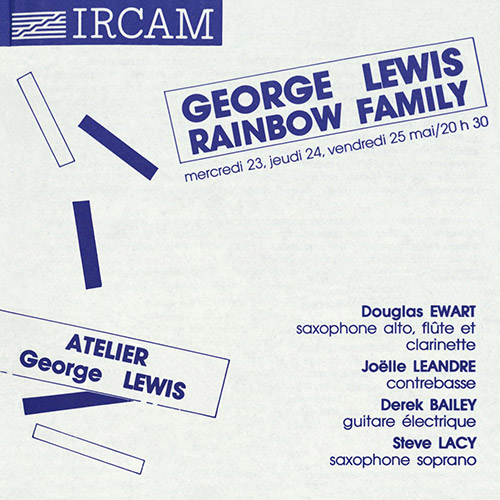

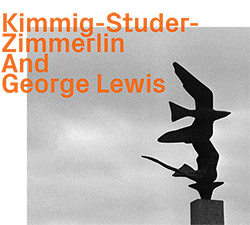
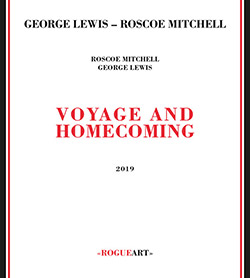

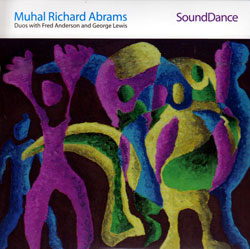
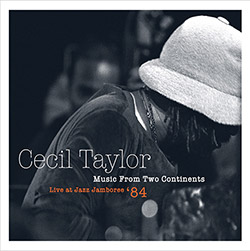


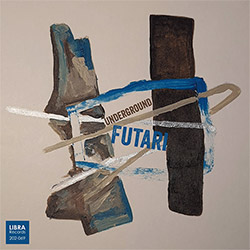




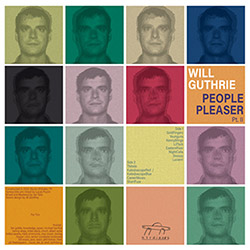
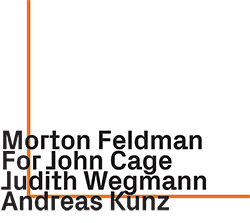
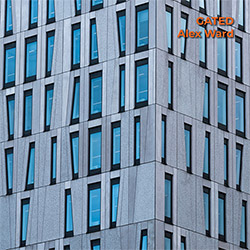
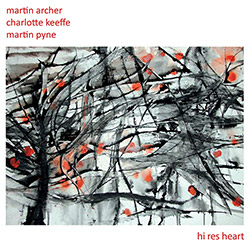
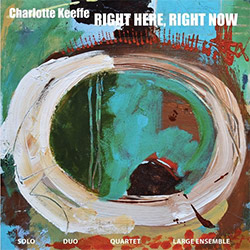
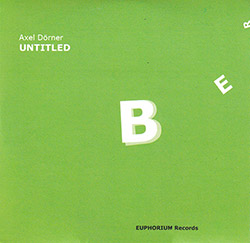
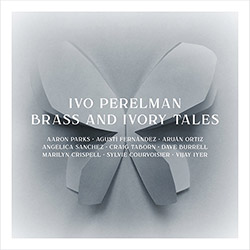
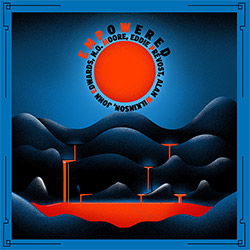
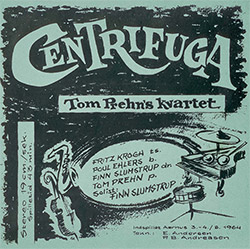

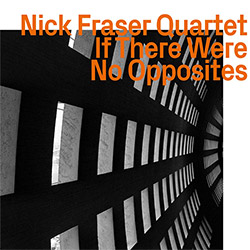
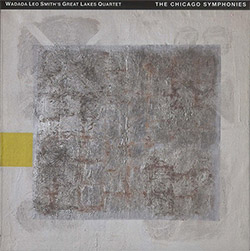




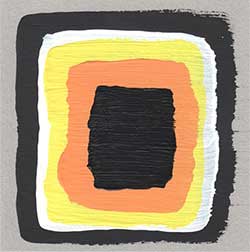
![Pisaro-Liu, Michael: Within (2) / Appearance (2) [2 CDs]](https://www.teuthida.com/productImages/misc4/36831.jpg)
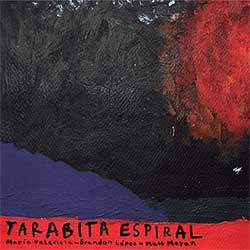
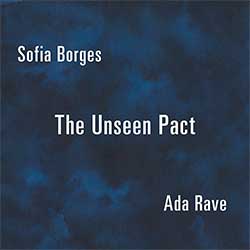
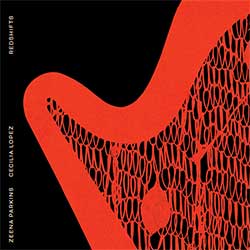
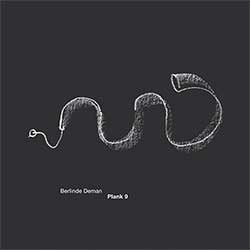
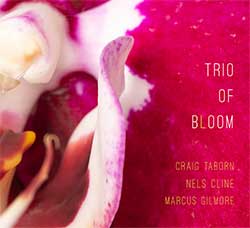

![Halls Of the Machine: All Tribal Dignitaries [CASSETTE w/ DOWNLOAD]](https://www.teuthida.com/productImages/misc4/36134.jpg)

![Singh, Laura Ann Quintet (w / Clark / Hopkins / Lilley / Miller): Mean Reds [VINYL]](https://www.teuthida.com/productImages/misc4/36761.jpg)

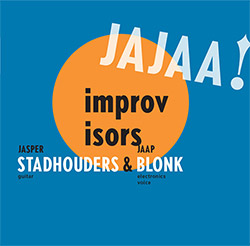
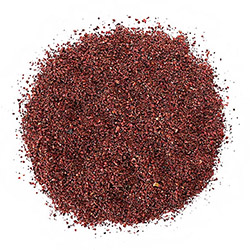
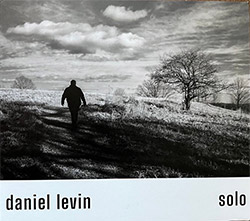
![Gate, The : Amost Live [CASSETTE + MAGAZINE]](https://www.teuthida.com/productImages/misc4/36836.jpg)
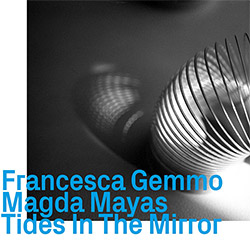

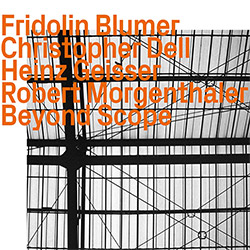
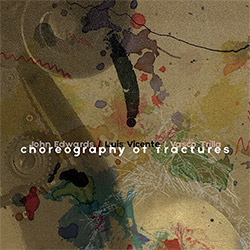
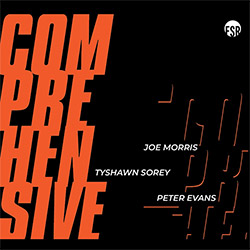
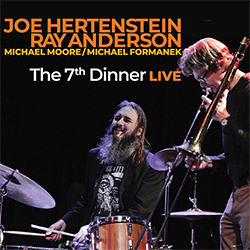
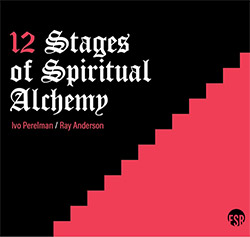

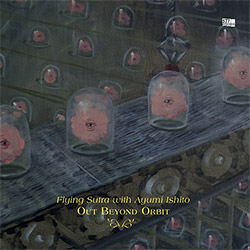



![Necks, The: Disquiet [3 CDs]](https://www.teuthida.com/productImages/misc4/36735.jpg)
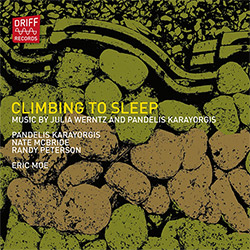
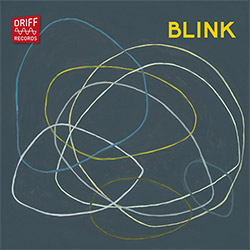

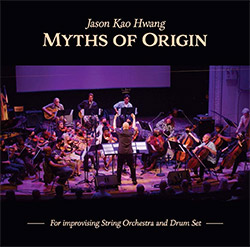
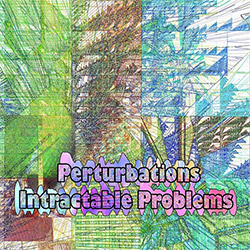

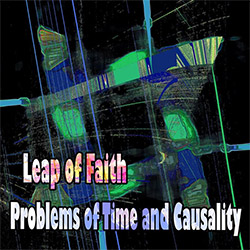
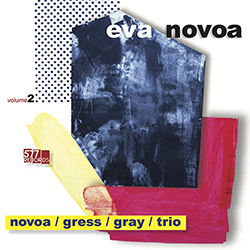
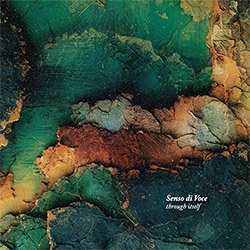
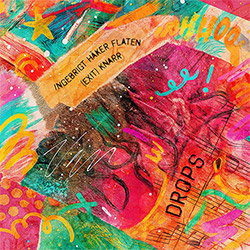
![Haker Flaten, Ingebrigt (Exit) Knarr: Drops [VINYL]](https://www.teuthida.com/productImages/misc4/36809.jpg)
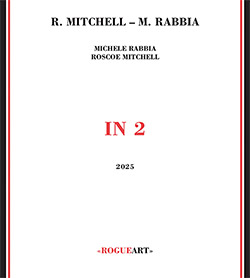
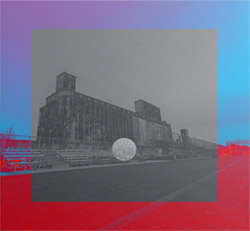
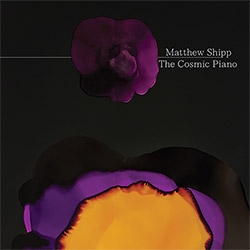
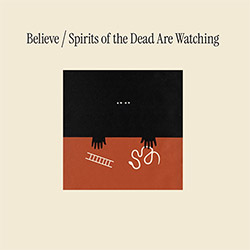







![A Magic Whistle: The Solar Cell [VINYL]](https://www.teuthida.com/productImages/misc4/36658.jpg)

![McGee, Hal: Columbus Expedition [Cassette w/ Download]](https://www.teuthida.com/productImages/misc4/36650.jpg)


![Jaeger, Kassel: Fernweh [VINYL 2 LPs]](https://www.teuthida.com/productImages/misc4/36541.jpg)





![+DOG+: The Light Of Our Lives [2 CDs]](https://www.teuthida.com/productImages/misc4/36009.jpg)


![Eternities: Rides Again [CASSETTE]](https://www.teuthida.com/productImages/misc4/36247.jpg)

![Lopez, Francisco: Untitled (2021-2022) [2 CDs]](https://www.teuthida.com/productImages/misc4/36438.jpg)












![Musicworks Magazine: #151 Summer 25 [MAGAZINE + CD]](https://www.teuthida.com/productImages/misc4/36559.jpg)

![Brown, Dan / Dan Reynolds: Live At The Grange Hall [unauthorized][CASSETTE]](https://www.teuthida.com/productImages/misc4/36245.jpg)








![Palestine, Charlemagne / Seppe Gebruers: Beyondddddd The Notessssss [VINYL]](https://www.teuthida.com/productImages/misc4/36206.jpg)
![Palestine, Charlemagne / Seppe Gebruers: Beyondddddd The Notessssss [NEON GREEN VINYL]](https://www.teuthida.com/productImages/misc4/36207.jpg)

![Laubrock, Ingrid: Purposing The Air [2 CDs]](https://www.teuthida.com/productImages/misc4/35639.jpg)

![Yoko, Ono / The Great Learning Orchestra: Selected Recordings From Grapefruit [2 CDs]](https://www.teuthida.com/productImages/misc4/35841.jpg)





![Koenjihyakkei: Live at Club Goodman [2 CDs]](https://www.teuthida.com/productImages/misc4/36111.jpg)

![Sorry For Laughing (G. Whitlow / M. Bates / Dave-Id / E. Ka-Spel): Rain Flowers [2 CDS]](https://www.teuthida.com/productImages/misc4/35985.jpg)

![Rolando, Tommaso / Andy Moor : Biscotti [CASSETTE w/ DOWNLOADS]](https://www.teuthida.com/productImages/misc4/36106.jpg)


![Electric Bird Noise / Derek Roddy: 8-10-22 [CD EP]](https://www.teuthida.com/productImages/misc4/35970.jpg)








![Elephant9 : Mythical River [VINYL]](https://www.teuthida.com/productImages/misc4/34624.jpg)



![Elephant9 with Terje Rypdal: Catching Fire [VINYL 2 LPs]](https://www.teuthida.com/productImages/misc4/35355.jpg)
![Deerlady (Obomsawin, Mali / Magdalena Abrego): Greatest Hits [VINYL]](https://www.teuthida.com/productImages/misc4/34876.jpg)




![Coley, Byron: Dating Tips for Touring Bands [VINYL]](https://www.teuthida.com/productImages/misc4/17906.jpg)

![Lost Kisses: My Life is Sad & Funny [DVD]](https://www.teuthida.com/productImages/misc4/lostKissesDVD.jpg)